RUSH: The Millennial generation — how they think, how they vote, their ideological persuasions. It all fascinates me, because they are generationally the future of the country. A lot things depend on them. And so we hope that… You go back to World War II as an example of what I’m referring to here. In World War II, prior to the Japanese bombing Pearl Harbor, the last thing that we wanted to do was get in the war. The war was raging in the Pacific. It was raging in Europe. Hitler was on the march. The prevailing opinion of the day in the United States was, “Not our war, none of our business.
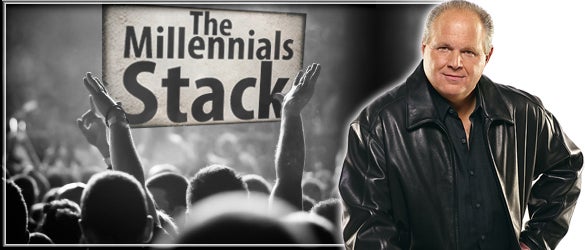 “There’s nothing for us there. Our interests are not threatened by any of this.” That was the prevailing opinion. But FDR felt differently and wanted us in the war but needed a reason, needed a pretext. The Japanese bombing Pearl Harbor gave the pretext. And then, of course, there was a moral component to stopping Hitler and what was going on. So on almost practically a moment’s notice, the United States was able to field a uniformed military that defeated the most evil powers on the planet at the time, via the draft.
“There’s nothing for us there. Our interests are not threatened by any of this.” That was the prevailing opinion. But FDR felt differently and wanted us in the war but needed a reason, needed a pretext. The Japanese bombing Pearl Harbor gave the pretext. And then, of course, there was a moral component to stopping Hitler and what was going on. So on almost practically a moment’s notice, the United States was able to field a uniformed military that defeated the most evil powers on the planet at the time, via the draft.
Eighteen, 19, 20-year-old people. It was men at the time, but everybody pitched in. As you know, the women went to work in factories. The amount of production this country engaged in producing weapons and armament, airplanes, ammunition? It was phenomenal what it did. And that was what ended, by the way, the Great Depression. Not the New Deal. It was the military buildup necessary — the economic activity resulting from it — that actually ended the Great Depression that had started in the thirties. It took eight to 10 years.
It was phenomenal what had happened. But more than that, we did not have a supply of battle-ready, highly trained, ready to go at a moment’s notice military. They were drafted. It was a testament. This is why this generation is called the Greatest Generation, because of what they did and what they had lived through prior to this. They had lived through the Great Depression. They had lived through abject poverty. Their parents had experienced World War I.
The postwar boom was yet to happen. That didn’t happen ’til after World War II in the fifties. Yet a draft of the average, ordinary American citizen was able to produce the most professional, the most skilled, the best trained fighting force the world had known. They were not sitting in barracks waiting to be called up. These were not people who had entered the military as a career. Leadership was, but I’m talking the rank-and-file, the people that went to Ranger School and ended up rappelling up Pointe du Hoc.
 The people of the Battle of Bulge. The people that went to the Pacific Theater. You stop and think. It was average, ordinary Americans who were plucked from relative obscurity from their daily lives and daily jobs who were then put together and tasked with defeating the evil empires at the time of Japan and Nazi Germany — and they did. I wonder. We don’t fight wars like that anymore. For example, Pointe du Hoc where it took the Rangers physically rappelling up a 200-foot cliff in the north of France?
The people of the Battle of Bulge. The people that went to the Pacific Theater. You stop and think. It was average, ordinary Americans who were plucked from relative obscurity from their daily lives and daily jobs who were then put together and tasked with defeating the evil empires at the time of Japan and Nazi Germany — and they did. I wonder. We don’t fight wars like that anymore. For example, Pointe du Hoc where it took the Rangers physically rappelling up a 200-foot cliff in the north of France?
We wouldn’t fight the Germans that way today. If something like that had happened, we’d drone them out, take them out with laser-guided bombs. So that kind of warfare such as depicted in the movie Patton or any of the World War II movies, we’re more advanced than that now, and we have circumstances where we have less reason to put as many human beings in the line of fire. But there are still those moments, such as at Benghazi.
But the point is, the generation back then — our values, our customs, the fabric of our society — was such that drafting thousands and thousands of average, ordinary Americans… And you can see them buried in the cemeteries of Europe; you can see them buried at Arlington. Just a random selection of people from all over the country created the absolute best, most skilled fighting force ever. Could we do it today if we had to? There are people that legitimately ask the question. It’s not meant to insult anybody. It’s not meant to cast aspersions on any other generation.
It’s a legitimate question because at the time, it was needed. If we had not succeeded, the United States might have ended as we know it. The Japanese and the Germans were on the march. Once we entered, we were as much the enemy as any European nation. What if we had surrendered? I was talking to Dr. Thomas Sowell, the great economist and now retired columnist who was the Hoover Institution in Palo Alto at Stanford. I remember interviewing him the last time I did for the Limbaugh Letter.
It was during the Obama administration. The Iran nuclear deal came up, and he was scared to death. He was literally scared to death. Dr. Sowell is part of the generation I’m talking about, the Greatest Generation, the World War II generation. He was scared to death of the Iran nuclear deal. He was scared to death of Iran getting nuclear weapons. The most unimaginable thing to him was a worldwide state sponsor of terrorism acquiring nuclear weapons with the aid of the United States. He was beside himself.
So much so that I asked him, “What do you fear?” He said, “I’m afraid that Iran’s gonna get a nuclear weapon and they’re gonna take out Chicago, and Obama or somebody like him’s gonna surrender.” I said, “Whoa. What? Surrender?” He said, “I’m damn serious! These are the kind of people we leading us today, these are the kind of people we’re creating: America’s guilty, America’s the problem, America’s the evil in the world. You never know, Rush.
“We might have a president someday when Iran takes out an American city and we have an American president say, ‘Well, we halfway deserve it because of what we’ve done in the past.'” It was a generational thing. So people today look at the younger generations up-and-coming look at how they are formed: What values do they hold, what do they consider important, relative toughness? You can only do this by comparison, and people ask themselves: If something similar were to happen as World War II, or a scenario like Dr. Sowell envisioned, is our country prepared to meet such a challenge?
And of course, we’ll never know until — or if — it happens. Well, this is why people study younger generations. This is why people take their measure and try to learn as much about them as they can. They’re products of their education; they’re products of their upbringing at home. When you look at that, the way they’re educated today? They’re educated that America’s the problem. They’re educated that America’s guilty. They’re educated that America’s illegitimate, unjust, immoral. They’re educated that we owe the world an apology.
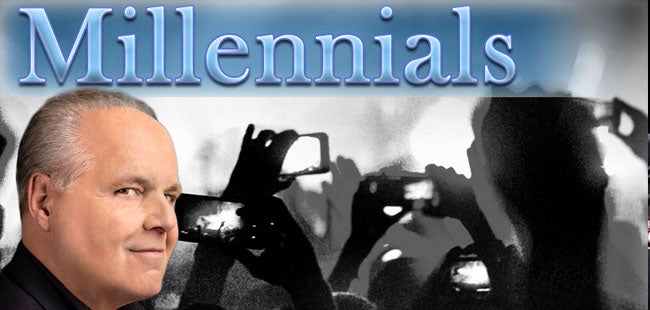 They’re educated to believe that America has been the problem in the world. They’re educated… Barack Obama is one who believes this. This smugness that he affects, he certainly believes the United States is not the solution to the problems in the world but largely a cause of them. That’s why Dr. Sowell had his fear, and this explains in part my interest in Millennials. Not just them. Millennials are Gen Y. Their parents are Gen X. Millennials are starting to have kids now. Don’t know what that generation’s called.
They’re educated to believe that America has been the problem in the world. They’re educated… Barack Obama is one who believes this. This smugness that he affects, he certainly believes the United States is not the solution to the problems in the world but largely a cause of them. That’s why Dr. Sowell had his fear, and this explains in part my interest in Millennials. Not just them. Millennials are Gen Y. Their parents are Gen X. Millennials are starting to have kids now. Don’t know what that generation’s called.
But a generation is usually every 25 years is when you mark the beginning of a new one, and these are things that people who have lived through horrors and challenges will forever wonder if the young people of the country will be able to meet similar challenges in the future. So that’s why I study it. That’s one of the reasons I’m fascinated by it. And just for the sociological reasons and for the comedy of it, for the interest. It’s all encompassing to me.
So that’s why I spent a lot of time on it when I see stories on Millennials such as Millennials dislike Trump but they love his policies. That kind of stuff fascinates me. They love 80% of Trump’s agenda. You take his name out of it; they love 80% of Trump’s agenda. You put his name in; 31% support him. Okay, what does that tell us? Then this story: “Why Millennial Women Want to Date Older Men.” Well, I know the answer on this. It’s as crystal clear as this computer monitor in front of my face. Men their age have been emasculated, have been chickified and neutered.
BREAK TRANSCRIPT
RUSH: Now, for those of you thinking that I’m being overly dramatic here — and I know you’re out there ’cause I found a couple emails during the break. I have a couple stories for you. If you think that I’m being overly dramatic about the status of our younger generations, here’s a story from the New Yorker. Headline: “We Could Have Been Canada — Was the American Revolution Really a Good Idea?” The premise of this story thinks the American Revolution was damned; it was wrong-headed. America would have been better off to have been founded in another way and ended up a more socialist country like Canada.
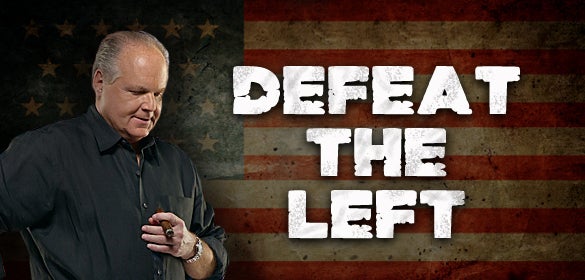 It’s rooted here in free health care and a number of other things. And there’s this story out of California, from my adopted hometown of Sacramento. Although the story is not specific to Sacramento. It’s about the California legislature, the assembly. “The California assembly has approved a bill allowing communists to work for the state. The state assembly voted yesterday to approve a bill that would eliminate Cold War-era language that allows California to fire any state worker who was a member of the Communist Party.
It’s rooted here in free health care and a number of other things. And there’s this story out of California, from my adopted hometown of Sacramento. Although the story is not specific to Sacramento. It’s about the California legislature, the assembly. “The California assembly has approved a bill allowing communists to work for the state. The state assembly voted yesterday to approve a bill that would eliminate Cold War-era language that allows California to fire any state worker who was a member of the Communist Party.
“Being a communist would no longer be a fireable offense for California government employees under a bill passed Monday by the state assembly. It would eliminate part of the law that allows public employees to be fired for being a member of the Communist Party.” Now, folks, America was founded incorrectly; we could have been Canada! We want communists back in government in California. These are… Well, “don’t ask, don’t tell,” California policies. I guess that’s totally out the window, “don’t ask, don’t tell” on anything. The more oddball you are, the more they want you!
BREAK TRANSCRIPT
RUSH: As always, if you’re on hold, hang on. We’re coming to you in due course here. I just want to share with you how this New Yorker story begins. New Yorker story, “We Could Have Been Canada — Was the American Revolution Such a Good Idea? — And what if it was a mistake from the start? The Declaration of Independence, the American Revolution, the creation of the United States of America — what if all this was a terrible idea, and what if the injustices and madness of American life since then have occurred not in spite of the virtues of the Founding Fathers but because of them?”
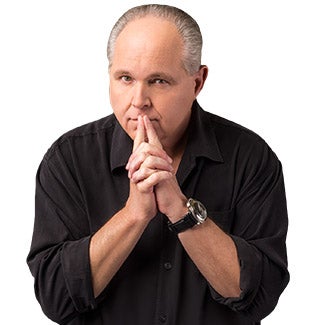 “[W]hat if the injustices and madness of American life since” our founding…? The injustices? This kind of filth was not prevalent two, three generations ago. In World War II, there was a common unity. A common bound among 90% of the population was patriotism. You can’t say that’s the case today, not with crap like this. And this guy, whoever wrote this — he’s just a product of some crypt, filthy educational system. The story goes on to claim that because of our form of government we had a slavery longer than we should have.
“[W]hat if the injustices and madness of American life since” our founding…? The injustices? This kind of filth was not prevalent two, three generations ago. In World War II, there was a common unity. A common bound among 90% of the population was patriotism. You can’t say that’s the case today, not with crap like this. And this guy, whoever wrote this — he’s just a product of some crypt, filthy educational system. The story goes on to claim that because of our form of government we had a slavery longer than we should have.
Not true, by the way.
We would have been more violent than we should be, and that we’re not as democratic as we should be. We’re just a really bad, horrible, rotten place — that everybody in the world wants to get into for some reason. I don’t know why, if this is such a rotten-ass place, that they want every immigrant in the world to get in here, but they do. The point is, young people read this crap. They hear this crap in their classrooms, they’re educated to this crap, and they grow up believing it. At what point do significant numbers say, “You know, America’s not worth defending the way it is.”
By the way, we’ve digitized the Limbaugh Letter. I just want to mention that to you. I mentioned the interview with Dr. Sowell. All of the interviews with Dr. Sowell are found in the archive of the digital Limbaugh Letter. We’ll post the link at RushLimbaugh.com on the website, if you want to access the digital archives of the Limbaugh Letter. Now, back to the phones in a minute, but I’ve teased you enough on this, “Why Millennial Women Want to Date Older Men.” This is from an outfit called Intellectual Takeout.
It’s written by a woman. Her name is Jessica Jacobs. It starts this way: “The recent Vanity Fair article detailing the more lurid underbelly of online dating — the barrage of [the male anatomy] pics, the endless swiping, the death of romance — was grim, if not horrific,” the story. “Dating, Vanity Fair would have you believe, is evolving into an elaborate charade of deception: Everybody is petrified of giving someone the ‘wrong idea.’ Men are impolite to the point of viciousness to ensure that the women they just hooked up with understand they don’t want a relationship.
“Women ‘self-objectify’ in profile pictures to get men interested, renouncing the ‘wrong idea’ that they might want something more than a one-night stand. No matter which way you spin it, landing yourself in a committed relationship seems to be, by Millennial standards, ‘the wrong idea.’ I want to believe that Vanity Fair selected only their most salacious interviewees to quote, but I know that’s not true. I’ve received my fair share of lewd attention during my online dating tenure to verify: It really is that bad.
 “But I’ve noticed a new strategy among my set of female friends — lovely, intelligent, independent women — to combat the grime of the online dating world,” the solution is to “date up,” as in age. “More and more women I know are dating men twice, yes twice, their age.” She’s confused. She thinks it’s because men are lewd and crude and read online porn and they not interested in commitment and this and that. So they want older, more mature men, say, of the Boomer generation or one generation removed.
“But I’ve noticed a new strategy among my set of female friends — lovely, intelligent, independent women — to combat the grime of the online dating world,” the solution is to “date up,” as in age. “More and more women I know are dating men twice, yes twice, their age.” She’s confused. She thinks it’s because men are lewd and crude and read online porn and they not interested in commitment and this and that. So they want older, more mature men, say, of the Boomer generation or one generation removed.
What it boils down to, for whatever the reasons, is the story makes it look like Millennial women are sick of their choices in men their own age. So they are dating older men who treat them better. They are forgoing motherhood. They are forgoing a lot of aspects of life that would happen if they married or dated somebody of their own age. And they are signing on, as the story says, to taking care of old guy when he’s in the wheelchair and can’t walk around anymore.
They’re saying they’d rather do that than take a pick of the current crop of men their age. Here’s another pull quote: “The stereotypes, she says, are true: Older men are attentive, they aren’t threatened by your career success, they didn’t grow up watching porn on their laptops, and they certainly don’t expect sex from you before you’ve even had a chance to meet. It’s not an ‘old-fashioned’ dating scheme, it’s just a more humane one,” with older men. “‘I wasn’t trying to go back in time,’ Gabrielle added at the end of our conversation.
“‘Nobody wants to go back to the 1950s[;] we just want to be treated with respect.'” So why are they not being treated with respect? What is it about Millennial men that they find so reprehensible? What is it about Millennial men that they just can’t abide, that they’ve gotta go get older, more mature, more polite, more respectful men? (interruption) Do you think they have the slightest idea? (interruption) You’re shouting in there. (interruption) What are you shouting? I can’t hear. (interruption) The current guys…?
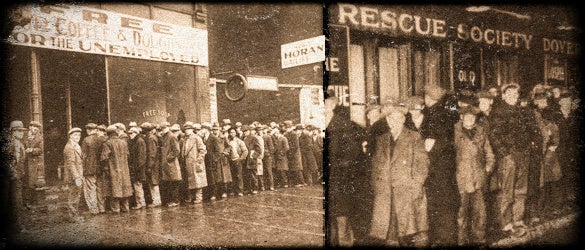 All right, so I’ve got a mother of a Millennial. “The current guys are a bunch of wimps. That’s what they know: They’re a bunch of wimps.” Okay, why? Who turned ’em into wimps? Are men traditionally wimps when they’re in their thirties? Millennial age is 18 to 34. We’ll say we’re talking 25 to 35. Why are they wimps? Why are they watching porn all day? Why are they doing online dating? Why are they engaging…? Why do they expect sex before the hookup? Why is all they want the sex after the hookup, no commitment, no dating, no nothing?
All right, so I’ve got a mother of a Millennial. “The current guys are a bunch of wimps. That’s what they know: They’re a bunch of wimps.” Okay, why? Who turned ’em into wimps? Are men traditionally wimps when they’re in their thirties? Millennial age is 18 to 34. We’ll say we’re talking 25 to 35. Why are they wimps? Why are they watching porn all day? Why are they doing online dating? Why are they engaging…? Why do they expect sex before the hookup? Why is all they want the sex after the hookup, no commitment, no dating, no nothing?
Why? The answer is staring us right in the face here. It’s been happening right in front of our eyes ever since the late sixties and early seventies. These women don’t have the slightest idea why men their age are so lacking — and, as such, they’ll never affix blame where it belongs. They’re gonna find an old, conservative guy and be happy ever after. (interruption) What? (interruption) Mmm-hmm. (interruption) That’s… (interruption) I’m… (interruption) The boy… (interruption)
Okay, let’s take a look at what the men have gone through. The men have had sensitivity training. So that means they should be polite. They’ve had sexual harassment training. They have had reeducation camps. Many of them have been raised by their mommies. Many of them have been raised by their daddies. Many have been raised by their mommies, two daddies, two mommies. Many of them have been raised by one parent. Many of them have not had a father around. Many of them have been taught about inclusion.
Many of them have been raised to believe that they’re brutes and that they’re beasts and they’re predators. Many have been raised to believe that they are naturally violent. Some of them have been raised to believe they’re special. Some of them have been raised to believe that they have never done anything wrong and that they are perfect. Some of them have been raised to believe they do not have to compete.
Believe me, if you don’t think you have to compete in the dating world, you don’t have a prayer. And if you’ve been raised that competition is evil, if you’ve been raised to have no desire to go to college because of what’s happening there — feminist studies — if you are afraid of being accused of rape every time you go out on a first date, what are you gonna do? The reason for this is staring us all in the face. It’s so prevalent, it’s so obvious, I don’t even have to mention it.
BREAK TRANSCRIPT
RUSH: Here’s Joe in Valdosta, Georgia. Joe, I’m glad you waited. Great to have you on the program.
CALLER: Hey, Rush. Thank you for your tribute to the Greatest Generation. They truly were unparalleled with their determination, their resolve, and dedication.
RUSH: I think it’s a phenomenal thing America’s able to do.
CALLER: That is true, Rush. But we paid an extremely high price for that, as well as that generation did, that generation, the Greatest Generation. Those were the people who felt the full effects of the Great Depression, okay? And that Great Depression was not over on a single day. It’s effects lasted years.
RUSH: Ten years. Ten, 20 years.
CALLER: They produced… The Greatest Generation produced the Baby Boomer generation, okay? They did not want their offspring to go through the hell that they went through, Rush. They wanted to make life easier for them.
RUSH: That’s true.
CALLER: I do believe that they caused most of society’s ills, not by design, just by natural parenting. Do you understand what I’m saying to you, Rush?
 RUSH: I know exactly what you mean. Let me phrase it in my own words. The Great Generation… By the way, folks, they had to grow up when they were 15. As I look like to say, the Greatest Generation, they learned… When people are (chuckles), you know, still trying to sneak beer at age, they had to learn life was about a lot more than them. They had to grow up fast. They were charged with literally saving the country. This is after they had come through the Depression.
RUSH: I know exactly what you mean. Let me phrase it in my own words. The Great Generation… By the way, folks, they had to grow up when they were 15. As I look like to say, the Greatest Generation, they learned… When people are (chuckles), you know, still trying to sneak beer at age, they had to learn life was about a lot more than them. They had to grow up fast. They were charged with literally saving the country. This is after they had come through the Depression.
After World War II is when the Soviets started promising them they were going to bury their grandkids. And they believed it. My grandparents believed every word Khrushchev threatened when he was at the United Nations making that speech. So Joe’s theory is here that the Greatest Generation — because of the Depression, World War II — didn’t want any of that for their kids. Now, look, I think this is a fact of every generation. I think every parent wants their children to have a better life than they did. But I know his point is they gave ’em things.
They wanted to cushion life. They didn’t want their kids to have anywhere near that kind of strife, and in the process created a generation that had plenty of spoiled people, plenty of expecting people, people with entitlements or entitlement mentality. I understand what you’re talking about. My parents wanted nothing like that. But my parents, actually, the primary lesson we were taught was that if it can happen once, it can happen again, and you need to be prepared. My dad felt that the only chance anybody had in life, because of the Depression, was to get a college education.
If you didn’t do that — and there’s no way a parent could give you that. They could maybe pay for it, but they couldn’t make you go. They couldn’t get you the degree. They couldn’t make the path. You had to do that on your own. My dad was insistent, and I just was not interested, and it was a point of friction during those years. He ended up feeling like a failure as a parent because I had not gone to college; therefore, he thought I didn’t have a chance. He didn’t give me things like Joe is talking about here, and he didn’t cushion things.
(chuckles) I remember when I told him I got fired the first time. You would have thought I had just failed life, that nobody was ever, ever gonna hire me again. I mean, he literally spit the word, “You’ve been FIRED?” It was just… I know what he’s talking about. But our parents were not that way. I don’t doubt that many were. It was a natural thing, as Joe was saying. They didn’t want their kids to go anywhere near that kind of hell, which is understandable. No parent wants their kid to go off to war.


